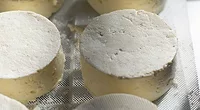Study: Processed Mac and Cheese Has Lots of Phthalates

The Coalition for Safer Food Processing and Packaging (CSFPP) has released testing data on the presence of phthalates in what has become known as the ultimate comfort food--macaroni and cheese.
Phthalates are chemicals commonly used in plastic products to help make them softer. Besides food packaging, phthalates are also used in the production of items such as nail polish, toys, flooring materials and hair spray, among others. According to some reports, the consumption of phthalates is linked to a number of health problems, particularly in males. These include testicular cancer, and problems with fertility, making exposure of phthalates to pregnant women and young boys a particular health concern. Austim has also been linked to phthalate consumption.
As part of CSFPP’s study, they purchased 30 different cheese products from a variety of U.S. retailers. This included:
- 15 types of natural cheese (cottage, hard, shredded and string)
- 10 variations of macaroni and cheese with dry cheese powder
- 5 kinds of sliced processed cheeses
All cheeses were then shipped to Belgium for independent lab testing at the Flemish Institute for Technological Research, also known as VITO. “Significant levels” of phthalates were detected in all but one of the cheese products tested. In fact, average phthalates levels were:
- 2x more common in macaroni and cheese powder than in processed cheese
- 4x more common in macaroni and cheese powder than in natural cheese
In order, the most commonly detected phthalate discovered by VITO’s testing were:
- DEHP, or Di(2-ethylhexyl) phthalate
- DEP (Diethyl phthalate)
- BBP (Benzyl butyl phthalate)
- DINP (Diisononyl phthalate)
It is important to note that food manufacturers are not directly adding phthalates to their recipes. Pthalates make their way into food products by way of direct contact with plastic materials during processing, packaging and labeling. This transmission is particularly notable for cheese products because phthalates are known to adhere to fatty foods more so than others.
At some point or another, phthalates have been banned in a number of countries and regions including Argentina, European Union, Japan and Mexico.
Sign up for Food Safety Magazine’s bi-weekly emails!
Subscribe to our new podcast: Food Safety Matters!
Looking for quick answers on food safety topics?
Try Ask FSM, our new smart AI search tool.
Ask FSM →








